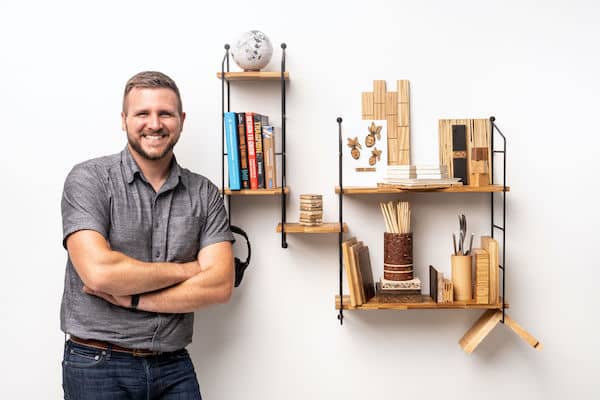
If I had to pick, I’d say that my top 2 favorite foods are really good Chinese and Japanese. And, over the years, I’ve become fairly proficient in using chopsticks to enjoy them with. I’ve even been known to quietly swipe a couple of extra one pairs from restaurants so that I can have some at home to use with my leftovers.
But as an environmental journalist, I sheepishly admit I never gave any thought to what happens to the millions of chopsticks used by thousands of restaurants across the country. It’s one of those in plain sight “small” issues that seem insignificant. Even considering the slim figure the humble chopstick presents, imagine the HUGE mountain they would make if they were all gathered together and stacked. The sight would be daunting.

One man stumbled on the idea to make used chopsticks recyclable – and this seemingly ridiculous idea is gaining traction.
Felix Böck, then a PhD student at Canada’s University of British Columbia, Canada, had been venting his frustration over the scant interest in his proposal to use waste wood from demolition and construction sites. Chopsticks in hand, Thalia Otamendi, the woman who is now his fiancée, looked at him and said: ‘Felix, maybe you just have to start with something small,’” said Böck. “And maybe it’s the chopstick.”
From that one statement, a uniquely innovative idea and recycling business was born. Böck sketched out plans for ChopValue, a start-up aimed at giving a new, useful second life to chopsticks. Soon enough, recycling bins were being dropped off at restaurants across Vancouver, methods of cleaning the simple utensils were developed and a process was developed to transform the chopsticks – most of which are made from bamboo – into sleek household items that range from tablet stands to tabletops.
Now, four years later, more than 32 thousand chopsticks have been successfully recycled and repurposed – diverting them from ending up in landfills and creating 40 new jobs.
ChopValue has expanded its North American presence and its process, which uses heat, steam and pressure to transform the chopsticks into wooden tiles. It’s now also being used in Calgary, Montreal and Los Angeles. And the company is dedicated to leading by an example of sustainability in its business practices.
There’s more to the story, which you can find here. But there’s also an important message here. Innovation can come by looking at simple, everyday objects and thinking about them a different way. And one person’s idea can transform something that others consider a wasted product into something new and useful again.
Something to ponder, yes?
Filed under: Uncategorized | Tagged: bamboo, chopsticks, recycling, waste reduction | Leave a comment »



